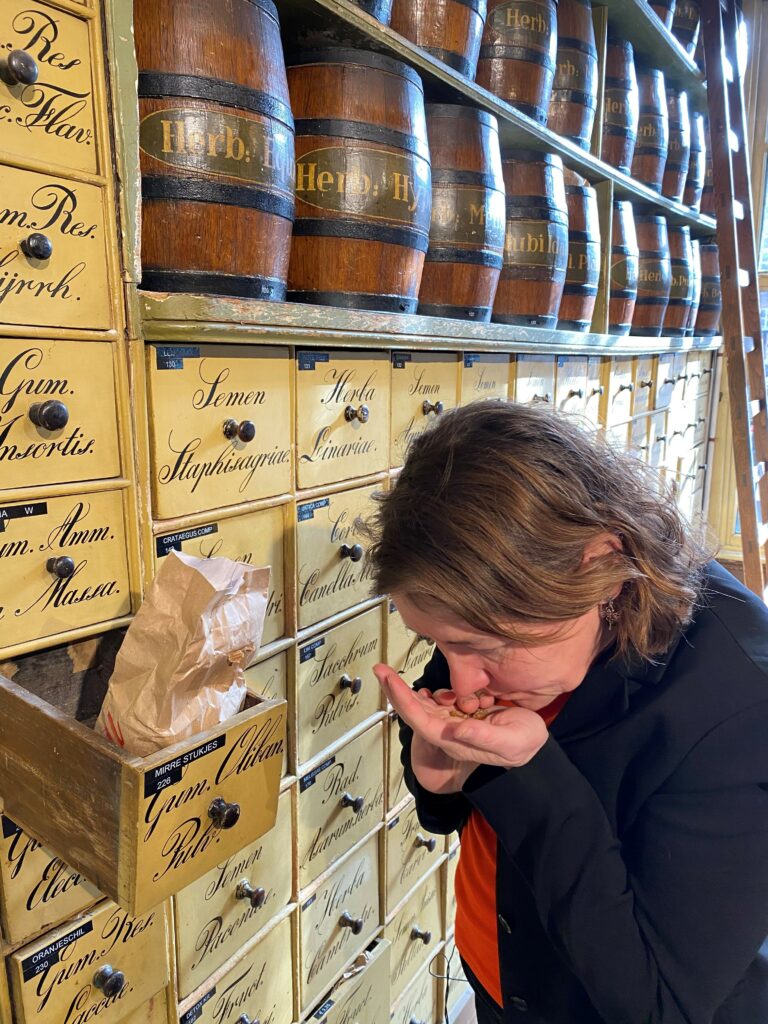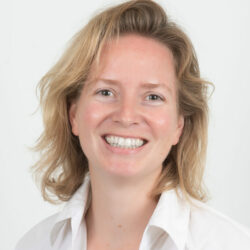Odeuropa
The EU Horizon2020 project Odeuropa: Negotiating Olfactory and Sensory Experiences in Cultural Heritage Practice and Research is the first pan-European research project investigating the role of smells in European culture and history. Oodeuropa is led by the KNAW Humanities Cluster, with Inger Leemans (NL-Lab) as project leader.
In the project, we show that critically engaging our sense of smell and our scent heritage is an important means for connecting and promoting Europe’s tangible and intangible cultural heritage. The project connects a multitude of disciplines: computer vision, natural language processing, semantic web, art history, olfactory history, museology, heritage science and policy making and involves partners from Germany, Italy, France, England and Slovenia.
Full cycle perspective on smell research

Odeuropa takes on historical and cultural smell research from a full cycle perspective: starting with historical text and image sources, artificial intelligence methods are employed and developed to extract relevant information on smells and their contexts. The extracted information is stored in an openly available Semantic Web database which is used by historians to complement archival research and experiment with distant reading methods to research olfactory heritage and history.
The same text and image resources are utilised by the olfactory events team to develop smell-enriched public events such as the ‘Der Nase Nach!’ exhibition at Ulm Museum in Germany or the Amsterdam City Sniffers self-guided walking tour. For the walking tour, a mobile phone app and rub and sniff cards were developed. At all Odeuropa-organised smell events as well as some additional exhibits such as at the Louvre and Prado museums, questionnaires were conducted to assess the public’s response to scents in cultural event settings. Finally, heritage scientists are preserving a selection of scents that are considered important to European cultural heritage such as frankincense and leather. The former has also been stored on DNA in collaboration with the Oligo Archive project.
Results
Odeuropa’s three core results are:
- Smell Explorer: an online, browsable and searchable Semantic Web resource that contains automatically extracted information on smells from texts and images from 1600 to 1920. https://explorer.odeuropa.eu
- Encyclopedia of Smell History and Heritage: a curated set of encyclopaedia articles pertaining to smell history and heritage using the Smell Explorer as well as other resources. The articles are written by Odeuropa members as well as colleagues from the wider olfactory heritage and history field. https://encyclopaedia.odeuropa.eu
- Olfactory Storytelling Toolkit: a “how-to” guide for working with smells in museums and other heritage institutions. It presents case studies, tips for building a strong olfactory narrative and creating heritage scents with a perfumer, notes on deciding between different presentation techniques, and worksheets for carrying out risk assessments. Development of the toolkit involved colleagues from Odeuropa and from various Galleries, Libraries, Archives and Museums (GLAMs) and was reviewed by curators from the New York Metropolitan Museum of Art and the London Victoria and Albert Museum. https://odeuropa.eu/the-olfactory-storytelling-toolkit/
Collaboration and Impact
Due to its collaborations with GLAMs and policy making bodies such as UNESCO, Odeuropa’s results reach far beyond the different scientific disciplines involved and have the potential to transform our relationship to smells in our cultural environments. Furthermore, the press attention given to the project attracted is unprecedented. Between the launch of the project November 2020 and the time of writing this report in October 2023, the project has registered 245 press appearances (88 Printed press (Newspaper & magazines), 80 Online, 63 Radio & Podcast, 12 TV interviews) and 300 independent press outlets covering Odeuropa from all over the world.
Partners
- KNAW Humanities Cluster (The Netherlands)
- FAU Erlangen-Nürnberg (Germany)
- Fondazione Bruno Kessler (Italy)
- Eurecom – Sophia Antipolis (France)
- Anglia Ruskin University (United Kingdom)
- Jožef Stefan Institute (Slovenia)
- University College London (United Kingdom)





